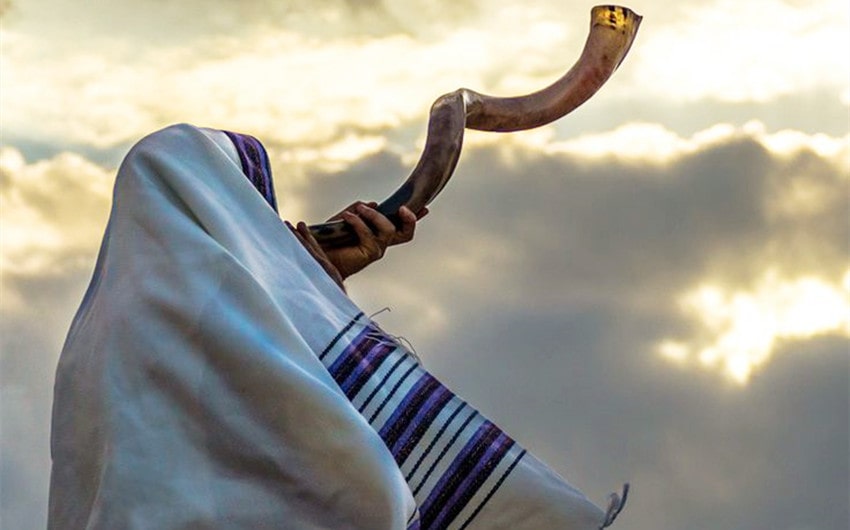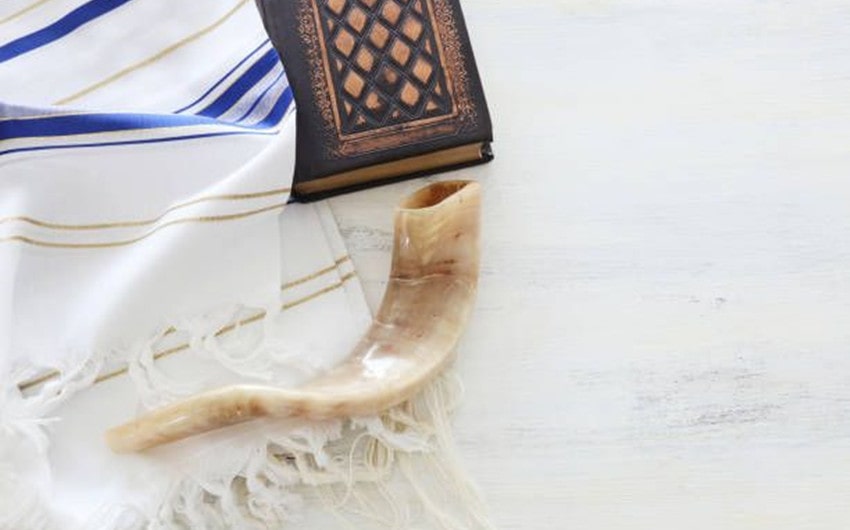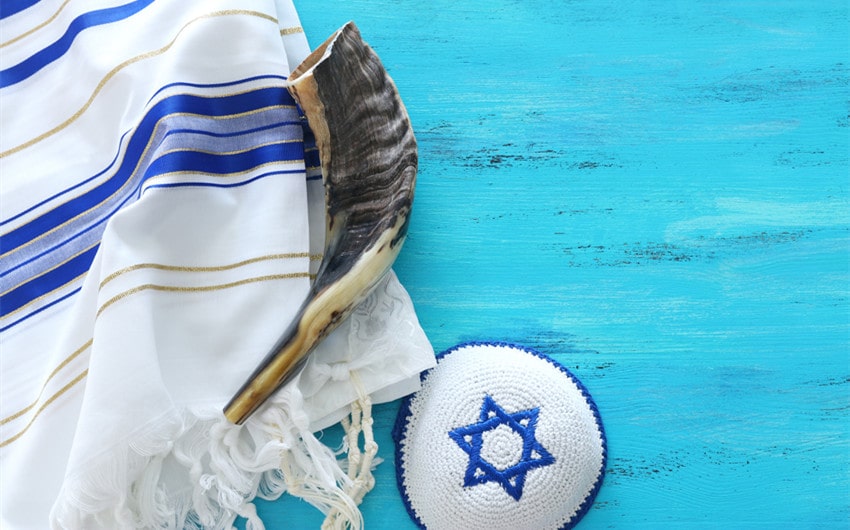What Do You Say to Someone on Yom Kippur? Learn Here
Yom Kippur is one of the most sacred days in the Jewish calendar, a time for reflection, forgiveness, and renewal. Whether you observe the day or know someone who does, it’s natural to wonder how to express your thoughts respectfully. Questions like “What do you say to someone on Yom Kippur?” often come to mind.
Finding the right words can make a meaningful difference, especially on a day as significant as this. In this guide, we’ll explore thoughtful greetings and ways to connect sincerely with those observing this holy day.
Understanding Yom Kippur

Yom Kippur, known as the Day of Atonement, is one of the holiest days in the Jewish calendar. It falls on the 10th of Tishrei and concludes the ten days of repentance that begin with Rosh Hashanah. This sacred day is focused on reflection, repentance, and renewal, offering an opportunity to seek forgiveness and set intentions for the year ahead.
Observance of Yom Kippur includes fasting for 25 hours, beginning at sunset and ending the next night. Synagogue services feature special prayers, including the solemn “Kol Nidre” recited at the start. The fast and prayers are a way to purify the body and soul, allowing individuals to reflect on their actions and commit to improvement.
While the day is solemn, it carries a hopeful message of renewal. The final sounding of the shofar signals the end of the fast and the start of a fresh spiritual chapter. Yom Kippur emphasizes the power of forgiveness and the importance of personal and communal growth.
Traditional Greetings

Image source: Pinterest
Greeting someone during Yom Kippur involves phrases that reflect the solemn and spiritual nature of the day. Each phrase carries unique meanings tied to the themes of repentance, reflection, and renewal. Here’s a breakdown of the most common greetings:
Traditional Hebrew/Yiddish Greetings
Yom Kippur has a rich tradition of specific Hebrew and Yiddish greetings that reflect the solemnity and spiritual focus of the day. These phrases carry deep meaning, often invoking wishes for forgiveness, renewal, and inscription in the Book of Life.
- G’mar Chatima Tova – “May you be sealed in the Book of Life.”
- G’mar Tov – “A good completion.”
- Tzom Kal – “An easy fast.”
- Chatima Tova – “A good sealing.”
- L’Shanah Tova Tikateivu – “May you be inscribed for a good year.”
- G’mar Chatima Tova u’Metuka – “May you be sealed for a sweet year.”
- Shanah Tova u’Metuka – “A good and sweet year.”
- G’mar Tov U’Bracha – “A good and blessed conclusion.”
- Tzom Mo’il – “A meaningful fast.”
- Kol Tuv – “All the best.”
English Greetings
If you’re more comfortable expressing yourself in English, there are many thoughtful and respectful ways to greet someone observing Yom Kippur. These greetings convey support and understanding while keeping the spirit of the day intact.
- Wishing you a meaningful Yom Kippur.
- May your fast be easy and your reflections deep.
- Hoping you find peace and renewal this Yom Kippur.
- May this Yom Kippur bring you clarity and growth.
- Sending you strength and blessings on this holy day.
- May you find forgiveness and peace this Yom Kippur.
- Wishing you a day of meaningful reflection.
- Hoping your prayers and efforts are heard and answered.
- May this sacred day bring you closer to renewal.
- May Yom Kippur bring you a fresh start filled with hope.
Casual or Inclusive Greetings
For more informal settings or when addressing someone you may not know well, casual or inclusive greetings are a great option. These expressions are simple yet meaningful, allowing you to acknowledge the day’s importance without requiring detailed knowledge of Yom Kippur customs.
- Good Yontif – “Good Holiday.”
- Thinking of you on Yom Kippur.
- Wishing you a peaceful and reflective holiday.
- May your Yom Kippur be filled with meaning.
- Hoping your day of atonement brings you strength.
- Sending warm wishes for a meaningful fast.
- Wishing you inspiration and peace on this sacred day.
- May this day bring you a sense of purpose and renewal.
- Hoping you find what you seek this Yom Kippur.
- Best wishes for a thoughtful and peaceful day.
Interfaith or Secular Greetings
When speaking to someone from a different faith or background, it’s essential to be inclusive and sensitive. Interfaith or secular greetings show understanding and respect while focusing on universal themes like reflection, peace, and renewal.
- Wishing you all the best on Yom Kippur.
- May this time of reflection be meaningful for you.
- Hoping this day brings you peace and understanding.
- Wishing you spiritual growth and fulfillment.
- Thinking of you as you observe this important day.
- May this sacred time bring you clarity and purpose.
- Hoping your Yom Kippur journey brings renewal and strength.
- Wishing you a moment of peace and self-reflection.
- Sending thoughts of kindness and respect for this special day.
- Hoping this meaningful time brings you hope and positivity.
Offering Support and Respect

Image source: Pinterest
Yom Kippur is a deeply reflective and spiritual day, making it important to approach those observing it with understanding and sensitivity. Offering support and respect during Yom Kippur can go a long way in strengthening relationships and showing genuine care. Here are some meaningful ways to do so:
Yom Kippur is a day of profound spiritual significance, and approaching those observing it with empathy and understanding can strengthen relationships and demonstrate genuine care. Here’s how to offer meaningful support and respect:
1. Acknowledge Their Fast
Fasting is a central aspect of Yom Kippur, symbolizing spiritual cleansing and self-discipline. Recognizing this practice shows respect for their dedication and effort. A thoughtful comment like, “Wishing you strength during your fast” or “I hope your fast is meaningful,” can express support without being intrusive. Avoid casual mentions of food or jokes about fasting, as these can unintentionally come across as dismissive or insensitive.
2. Show Respect for the Day’s Solemnity
Yom Kippur is not a time for celebration but a day for deep introspection and atonement. It’s important to maintain a tone that aligns with the day’s solemnity. Replace greetings like “Happy Yom Kippur” with more appropriate ones, such as “Wishing you a meaningful Yom Kippur” or “Hoping this sacred day brings you peace and reflection.” These expressions acknowledge the gravity of the day while showing thoughtfulness and respect.
3. Express Encouragement and Support
Yom Kippur can be both physically and emotionally demanding, making encouragement valuable to those observing it. Acknowledge their effort with words like, “May this day bring you clarity and renewal” or “Hoping your prayers and reflections are meaningful.”
If someone shares their personal experiences or challenges related to Yom Kippur, listen with empathy and offer supportive, understanding responses that validate their journey.
4. Offer Understanding if They Need Time or Space
Yom Kippur is often spent in prayer, meditation, or quiet reflection, and many people prioritize these practices over social or work commitments. Respect their need for solitude or spiritual focus without questioning or pushing for explanations.
If they seem unavailable, let them know you understand, saying, “I completely understand you may need this time for yourself.” This reassures them that you respect their observance and value their spiritual needs.
5. Avoid Assumptions or Pressures
Not everyone observes Yom Kippur in the same way, and practices can vary widely. Some may fast and attend synagogue, while others might reflect in private or engage in acts of charity. Avoid making assumptions about how someone observes the day, and instead, you could ask, “How do you usually observe Yom Kippur?” if the context feels appropriate. This openness allows them to share their practices without feeling judged or compared.
6. Respect Their Journey
The themes of forgiveness, atonement, and renewal are deeply personal, and each individual’s experience of Yom Kippur is unique. Allow space for them to share their reflections if they choose, but don’t pry into their personal struggles or atonement process.
A simple, heartfelt comment like, “I hope this day brings you peace and healing,” shows understanding and support without being intrusive, affirming your respect for their spiritual journey.






